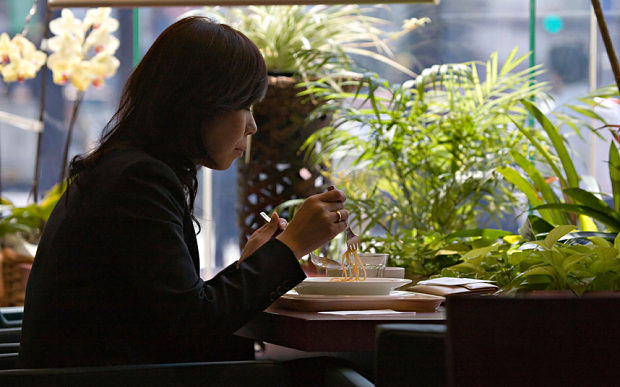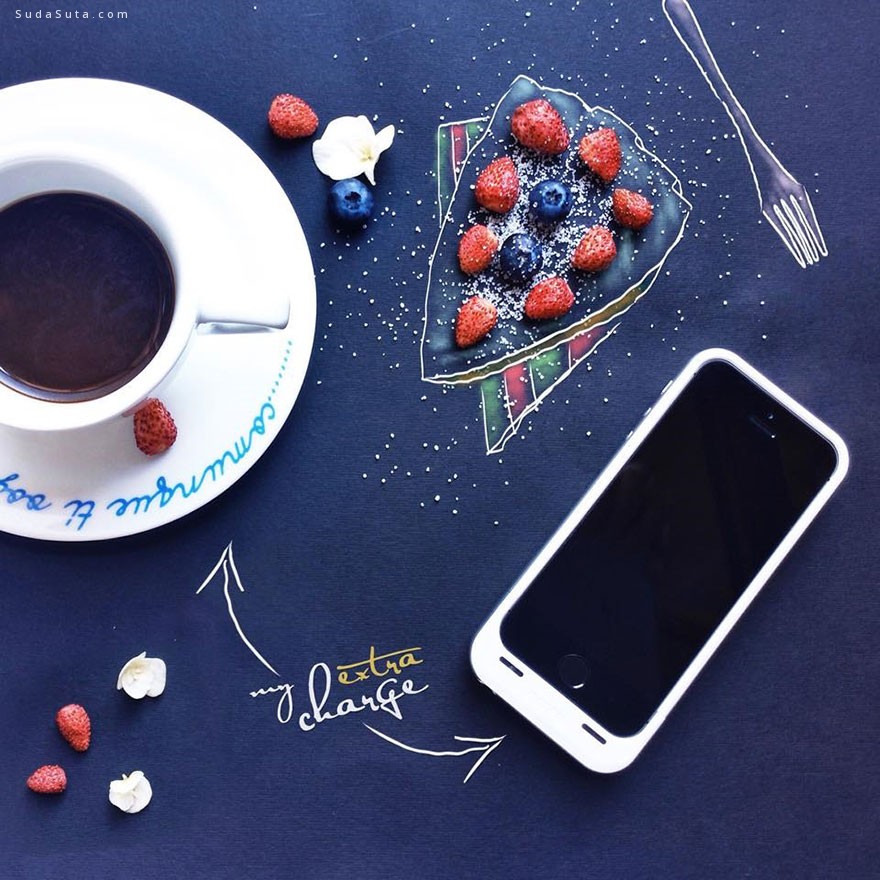The rise of "Silence Cafe" Cafe recommendation in Japan

A young woman sits alone in a café sipping tea and reading a book. She pauses briefly to scribble in a nearby notepad before showing her words to a passing café worker: "Where are the toilets please? "
A young lady was sitting alone in a cafe sipping tea and reading a book. She paused for a moment, scribbled a few words on a pad beside her, and showed it to a passing waiter. It read: "Where is the bathroom?"
This is a familiar scenario in Tokyo’s so-called "silent cafés", spaces which appear at first glance to be conventional cafes but where customers are not allowed to speak, communicating instead by writing in notepads.
This is a common sight in tokyo's so-called "silent cafes." At first glance, these cafes are no different from ordinary cafes, but customers who enter the store cannot speak and can only communicate by writing on sticky notes.
A growing number of "silent cafés" - with self-imposed chat bans - are opening across the capital, attracting a steady stream of solo Tokyoites keen to swap the pressure-cooker pace of urban life for solitary silence.
A growing number of "silent cafes", where customers voluntarily shut up, have opened throughout Tokyo, attracting a steady stream of Tokyo loners who desperately need such places to escape the stressful rhythms of city life in exchange for a moment of solitude.
The concept taps into a rising desire among young Japanese to be alone, a situation fuelled by economic uncertainty, a shift in traditional family support structures and growing social isolation.
The concept of "silent cafes" capitalizes on young Japanese's growing desire for solitude, exacerbated by economic instability, shifts in traditional family support patterns, and growing social isolation.
The phenomenon is not confined to coffee shops but covers everything from silent discos, where participants dance alone wearing wireless headphones connected to the DJ, to products such as small desk tents designed for conversation-free privacy in the office.
This phenomenon is not limited to cafes, but covers a variety of areas. In silent discos, participants wear wireless headphones to connect to DJs and dance alone. There are also products like small desk tents to avoid talking to others in the office.
At the more unusual end of the spectrum, one Kyoto company offers single women the opportunity to have a "one woman wedding" - a full bridal affair, complete with white dress and ceremony, the only thing missing being the groom.
In addition to the usual merchandise, a Kyoto company is offering single women the opportunity to hold "one-woman weddings"-full wedding services, complete with white wedding dresses but no groom.
The trend has its own media buzzword "botchi-zoku", referring to individuals who consciously choose to do things completely on their own.
The trend has its own media buzzword: botchi-zoku, for people who consciously choose to act alone.
One recent weekday afternoon, Chihiro Higashikokubaru, a 23-year-old nurse, travelled 90 minutes from her home in Odawara, Kanagawa prefecture, to Tokyo on her day off in order to indulge in some solo time.
On a recent weekday afternoon, Chihiro Higashikokuhara, a 23-year-old nurse, traveled 90 minutes from her home in Odawara, Kanagawa Prefecture, to Tokyo just to enjoy some alone time on vacation.
Her destination was R-za Dokushokan, a silent café on a narrow street near Koenji station, where she planned to drink tea, draw some illustrations in a sketchbook and savour the silence.
Her destination was R-za Dokushokan, a silent cafe on a narrow street near Koenji Station. She planned to drink tea there, draw pictures in her sketchbook, and enjoy the peace.
Speaking quietly at the entrance of the cafe, Miss Higashikokubaru said: "I heard about this place in magazines and via Twitter and I liked the idea of coming here.
At the entrance of the cafe, Miss Higashikokuhara whispered,"I saw this place in magazines and on Twitter. I really want to come here."
"I work as a nurse and it\'s always very busy. There are very few quiet places in Tokyo, it\'s a big busy city.
"My job as a nurse is always busy. Tokyo is a busy metropolis. There are few quiet places."
"I just wanted to come and sit somewhere quietly on my own. I’m going to drink a cup of tea and maybe do some drawings. I like the idea of a quiet, calm atmosphere – they’re difficult to find. "
"I just wanted to find a place to sit quietly by myself. I'm going to have a cup of tea, maybe draw something. I like the idea of a quiet, peaceful atmosphere, which is rare."
Miss Higashikokubaru is one of more than 200 visitors who pass through the doors and sit in silence at the café every week, according to Taiki Watanabe, its 45-year-old owner.
Daiki Watanabe, the 45-year-old owner, said Ms. Higashikunihara is one of more than 200 customers a week who come to the cafe to sit quietly.
Tucked away at the top of a small staircase, the first floor café, which opened seven years ago, is a serene haven of one-person seats, antique wooden tables, forest-like green plants and a wall of books complete with the soothing sound of flowing water from an aquarium.
The second-floor cafe, tucked atop a small staircase and opened seven years ago, is like a haven of peace for customers: single chairs, antique wooden tables, dense greenery, a wall of books and the gentle sound of water flowing from an aquarium.
"I used to work in another café before opening this place,” said Mr Watanabe.“It was very different, busy and loud. I really liked the idea of opening my own calm and quiet space. Some silent time is very important for people living in cities.”
Watanabe said: "I worked in other cafes before opening this shop. It's very different there. It's busy and noisy. The idea of opening a peaceful and quiet shop of my own is very exciting to me. It's important for people living in cities to have some quiet time."
While visitors may be banned from talking, electronic devices such as phones (without speaking) are generally permitted, reflecting how the concept is as much about avoiding the stresses of human interaction as switching off.
While customers are not allowed to speak, they are generally allowed to use electronic devices such as cell phones (as long as they do not speak), reflecting the concept as much about forgetting about work and relaxing as it is about avoiding interpersonal stress.
Mr Watanabe added: "The rules are: you cannot speak, you must order a drink, and a drink should last no longer than two hours. If you need to communicate, there are notepads to write in.
Watanabe added: "The rules are: no talking, you have to order a drink, and you have two hours." If you need to communicate, write it down on a pad.
"Most people come on their own and read a book, work, write or draw or enjoy a hobby. A few do nothing. It’s a way for people to forget their daily tasks and give their brain some silent time.”
"Most people come alone, read a book, do some work, write or enjoy their hobbies. A few people do nothing. It's a way for people to forget about their daily tasks and give their brains a break."

Another example of the rise of solo activities in Japan is the one-woman wedding: Cerca Travel offers single women the opportunity to enjoy a wedding, minus a husband, with a two-day wedding package in Kyoto.
Another solo event that has sprung up in Japan is the one-woman wedding: Cerca Travel gives single women the opportunity to enjoy the wedding, a two-day wedding arrangement service held in Kyoto without a groom.
A special wedding dress, beauty treatments, dinner, hairstyle, limousine service, a hotel stay and photo album are among the treats the "bride" can enjoy as part of their packages starting from around? 1666.
The services available to the bride include special wedding dresses, beauty treatments, dinners, hairstyles, limousine services, hotel accommodation and photo albums, with prices starting at about 1666 pounds.
More than 100 women have enjoyed the solo wedding experience since it launched last year, according to Akai Natsumi of Cerca Travel.
Since the launch of the service last year, more than 100 women have experienced such single weddings, according to Xia Mei Akai of Cerca Travel.
"Women want to have solo weddings to make their dreams come true," she said. "It is something they do for themselves.
"Women want to realize their dreams with single weddings, which is what they do for themselves," she said. "
Nowadays women have many different ways to live their lives. Not everyone wants to get married. But many women still want to wear the wedding dress that they dreamt about as a child.
"Women nowadays have many different lifestyles. Not everyone wants to get married. But many women still want to wear the wedding dress they dreamed of when they were young.
"It\ & # 39 th s becoming very popular. Many women feel very gratified and impressed by the experience, they often shed tears."
"single weddings are becoming more and more popular. Many women are satisfied with the experience and are touched, often in tears. "
The desire to be solitary is not a new concept in Japan, a nation famously home to an estimated 3.6million "hikikomori"-a more extreme example of social recluses who withdraw completely from society.
In Japan, the yearning for solitude is nothing new. Japan's "dormant people" are well known, with an estimated number of 3.6 million. The "dormant clan" is a more extreme seclusion group, completely isolated from the rest of the world.
Important Notice :
前街咖啡 FrontStreet Coffee has moved to new addredd:
FrontStreet Coffee Address: 315,Donghua East Road,GuangZhou
Tel:020 38364473
- Prev

To tell you the truth, can you drink coffee or not?
Drinking coffee, in the perception of most people, is a high-end behavior, all because it has appeared in our world in an expensive and mysterious image in its early years, an expensive drink that can only be ordered on the menu of western restaurants or Hong Kong-style fast food. a bitter drink that foreigners drink every day. But after all, the domestic coffee trend has only become popular in recent years, some brands of chain coffee
- Next

Fox Rain Girl's Planet Story with Coffee Little Prince Story
A lovely set of fun life from Nini Bil, a fresh set of hand-painted inserts at coffee time. Illustration is my passion. I refined my skills in digital drawing techniques, and this allowed me to grow up as a Graphic Designer and Digital Illustrator.
Related
- Can lightly roasted coffee beans be used to extract espresso? How finely should you grind high-quality coffee beans to make Italian latte?
- What is the difference between the world's top rose summer coffee and Yejia Shefi? What are the flavor characteristics of Yega Shefi coffee and Panama rose summer?
- The ceremony is full! Starbucks starts to cut the ribbon at a complimentary coffee station?!
- A whole Michelin meal?! Lucky launches the new "Small Butter Apple Crispy Latte"
- Three tips for adjusting espresso on rainy days! Quickly find the right water temperature, powder, and grinding ratio for espresso!
- How much hot water does it take to brew hanging ear coffee? How does it taste best? Can hot water from the water dispenser be used to make ear drip coffee?
- What grade does Jamaica Blue Mountain No. 1 coffee belong to and how to drink it better? What is the highest grade of Blue Mountain coffee for coffee aristocrats?
- What are the flavor characteristics of the world-famous coffee Blue Mountain No. 1 Golden Mantelin? What are the characteristics of deep-roasted bitter coffee?
- Can I make coffee a second time in an Italian hand-brewed mocha pot? Why can't coffee be brewed several times like tea leaves?
- Hand-brewed coffee flows with a knife and a tornado. How to brew it? What is the proportion of grinding water and water temperature divided into?

